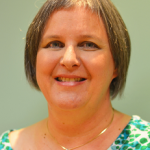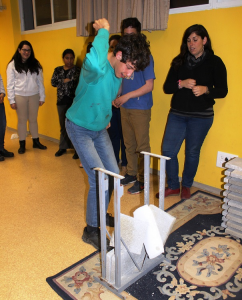
Bricks, Breaking And Completeness
In 1998 I began a wonderful trip into the world of Rabbi Adin Steinsalz’s Biyur Tanya (the Tanya is an early work of Hasidic philosophy, published in 1797). Though the Tanya has lots of very deep Kabbalistic concepts, most above my ability to really comprehend, Rabbi Steinsaltz has a way of making them very accessible. After 16 years of learning, I went to visit the Rabbi to ask two questions I had that were bothering me. This blog will address the question of how Torah/God values perfection or completeness.
There is a thought that as each person is a complete entity, so is each generation, each world, each level of understanding. The metaphor used in Torah to describe completeness is the human body. This truly bothered me. First, I have spent my entire adult life working with all different types of less than perfect people. As a matter of fact, I am one of them. So, if the standard of completeness and perfection is a perfect “body” where does that leave me and the people I know and love?
In questioning the Rabbi he told a story of a man who has outlived every prediction ever made of how long he was going to live with ALS. A man who to this day communicates by blinking and continues to write. The Rabbi’s answer to my question was that it is not about physical completeness, but rather about being comfortably and completely you.
To me, this is the message that I teach about inclusion. It is not my job to define completeness. It is my job to help whomever I teach feel good about being exactly who they are, as they are, on their journey in this life. It is about you feeling great about being completely you.
One of my favorite organizations to work with is Shutaf because they get this. You can see it in the eyes of their madatzim (young leaders with disabilities). Last week I got to teach them how to break boards and bricks. What? Really? Yes, we broke boards and bricks with our hands and our indomitable spirit. And I did it just a little bit differently then I usually do.
Disclaimer: No trees were harmed in the running of this workshop. We use re-breakable boards.
What was different? We broke through all of the things we don’t like about ourselves. And all of the not nice things that other people think about us or say to us. We broke through “stupid” and “retard.” We broke through “gimp” and “lazy.” We broke through everything these amazing young people could think of. On one hand, it was so sad for me to hear how much they were carrying with them, because we filled 25 boards with different “bad” things to break through. On the other hand, we broke through 25 boards with positive affirmations!
The following week they came to attack the bricks. I’ll share a little trade secret. When we break re-breakable boards, I can help them get through it. The way I hold it and the way I put pressure on it, I can help just about everyone to succeed in breaking a board. Not so with the bricks. When it comes to breaking a brick, I can coach and I can cheerlead, but it is really the person and the brick in front of them. I must say I was a bit nervous. I hate it when someone who really wants to succeed and really needs to succeed can’t. It wasn’t enough that I was fighting my own demons about this group’s ability to succeed in this but I was hearing it from others around me. “Really? You are going to break bricks with Shutaf?” “What if?” And “What if?”
Hey, hold it! Exactly! What if! What if they succeed? What if they can do this? What if this empowering breaking through the seemingly impossible is a gift I can give them? What if I believe in the power that they have to achieve whatever it is that they set their minds too? What if we as a community stop looking at “them” and start looking at “us” as a complete community that needs each other to truly be complete. With all of our parts, whatever they may be, intact, including and cherished.
So what happened when they came to El haLev? They broke. And boy, did they break! My favorite success was a young man who was so completely reticent to even walk up to the brick. I looked him in the eyes and I said, “Repeat after me. I am strong!” “I am strong!” “I can do this!” “I can do this!” “I am strong!” “I am strong!” “I can do this!” “I can do this!” “Now! Break that brick!” and he did. I have never in my life felt such deep satisfaction. I have never seen such a momentous change in the way a person looks before and after a break. Though I am certain that there are plenty of people in this young man’s life who tell him that he is capable to do whatever it is that he wants to do, I am pretty certain no one has ever told him that he is strong.
Everyone, and I mean everyone, walked out just a little taller that evening. It is amazing how completely transforming breaking can be. And yes, being “complete”, just like the Rabbi said, is about how completely good we feel about ourselves.
An Israeli-based renowned motivational speaker who has taught thousands to find their inner strength, Yudit’s passion is teaching. An educator with over 30 years’ experience in special education, particularly inclusion, she is a founder, senior instructor and the CEO of El HaLev. El Halev is a women-run NGO working to end violence by providing personal safety & empowerment programs for women, children, seniors & people with disabilities. Like them on Facebook!
About the author Yehudit Sidikman is a founder, senior instructor and the CEO of El HaLev. El Halev is a women-run NGO working to end violence by providing personal safety & empowerment programs for women, children, seniors & people with disabilities.
Stay Included
To stay up to date on our most recent advocacy efforts, events and exciting developments, subscribe to our newsletter and blog!
















